Published Nov 6, 2014
Colm Meaney Talks TNG, DS9 and Hell on Wheels
Colm Meaney Talks TNG, DS9 and Hell on Wheels
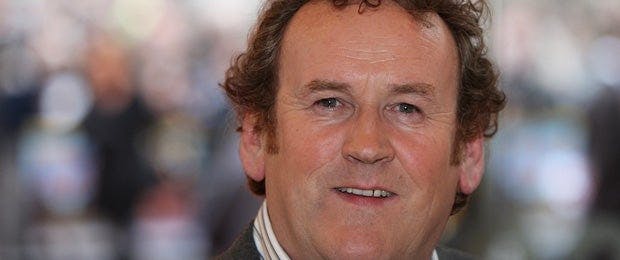
StarTrek.com has finally caught one of the last remaining big fish. Since the site was rebooted four-plus years ago, it’s been our goal to interview every living major player in the Star Trek universe. We snagged most of them, but a few remained elusive: Avery Brooks, Nicole De Boer, Jolene Blalock, Nicholas Meyer and Colm Meaney. We snagged Meyer a few weeks back, in advance of his appearance at Destination Star Trek 3 in London and, while in the U.K. for the actual event, Meaney agreed to chat. The conversation encompassed The Next Generation, Deep Space Nine and his current series, Hell on Wheels. Meaney asked only that we hold off running this interview until closer to the debut of “Bleeding Kansas,” the episode that will kick off the final three-episode arc of the show’s fourth season. Well, “Bleeding Kansas” will air tomorrow night, November 8, on AMC, and so we’re pleased to present our interview today. Here’s what he had to say.Let’s start with Star Trek. There are great markers of time passing right here, right now. LeVar Burton is at one table, and Hana Hatae is sitting at the table behind you.MEANEY (turning to Hatae): I know. I know. She’s a beautiful young lady now. I feel like I gave birth to her (They both laugh). My own little girl is 29 now, and she was a kid when we were doing Star Trek. I’m kind of used to everyone growing up around me.
Star Trek will turn 50 in a couple of years, and you will have been a part of it dating back nearly 30 years...
MEANEY: It makes me feel very old. It’s scary. We’ve all lived with this a long time. Sometimes we take it for granted. But it’s really a part of your life when you come to an event like this. Everyone is so familiar and we’ve known each other for so long.
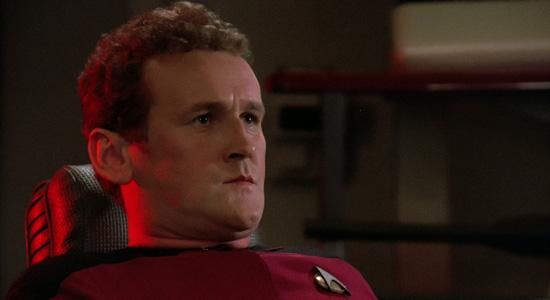
You were basically a background player in the TNG pilot. Did anyone tell you then that it could lead to steady work?MEANEY: No. Initially it was just that, the pilot, and then there’d be some episodes I was in and some that I wasn’t. They just kept calling me back. I can’t even remember, honestly, if it was supposed to be a one-off or recurring. I was just happy for the work. The character got a name, eventually, and then we saw a little more of him, and then they asked me to do Deep Space Nine.By the time DS9 rolled around, you were a busy character actor doing lots of TV and film. How long and hard did you have to think about signing on to play O’Brien full-time, as a regular on DS9?
MEANEY: I took a bit of persuading, but Rick Berman is very persuasive. He said to me, “If there’s something you really want to do, bring me the script.” My concern was that I wouldn’t be able to do the movies I wanted to do. Rick basically said, “If it’s a script you really want to do, I’ll find a way to make it work for you.” And he was as good as his word.
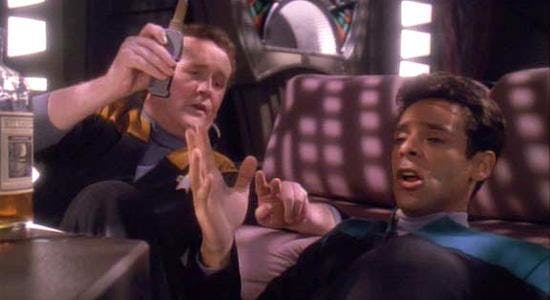
O’Brien had a family. He had the bromance going with Dr. Bashir. He suffered a whole lot. How well-rounded a character did he end up being in your estimation?
MEANEY: I was very satisfied with his evolution. I got to do a lot of cool things and, between the scenes with Sid (Alexander Siddig) and Rosalind (Chao), you really got to know him. Add to that the normal day-to-day stuff of being part of the crew on the station, and he was a busy guy.
Did you ever worry about stretching yourself too thin?
MEANEY: No, it was important to do the movies because that kind of refreshed you. Rather than doing the same thing over and over again, you were doing a variety of stuff.
Overall, did you make the right decision to do DS9?
MEANEY: I think so. Yes. It was a good show. It was a great bunch of people. It didn’t, as we’ve been discussing, put me in a situation where I couldn’t do anything else.
It’s a credit you're happy to have on your resume...
MEANEY: Exactly.
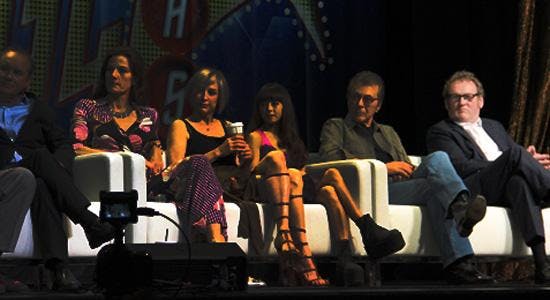
We saw you on stage in August at the big Trek convention in Las Vegas, and you mentioned then that people love Hell on Wheels, but that it feels like not enough people are watching it…
MEANEY: The numbers are actually there. Since the beginning, Hell on Wheels has been AMC’s second highest-rated show. The only show that’s doing better than us is The Walking Dead, and that’s like a phenomenon, the numbers they have. So people are watching Hell on Wheels, but it doesn’t seem to get the exposure is what I meant to say, like Breaking Bad or Mad Men. I understand that Breaking Bad, especially its last couple of seasons, became a phenomenon itself. It’s curious the way Hell on Wheels has developed. It was a very highly anticipated pilot, but the first season was a bit disappointing and the reviews were kind of lukewarm, to be blunt about it. We had troubles in the second season, with a change in the writing staff and a change of the show runner. Season three, we kind of found our feet a little more, and this season we’ve really hit our stride with the show. But despite all those troubles during the gestation period, if you like, the show held, the numbers held. It’s got a core audience.
What’s your sense of what the core audience appreciates?
MEANEY: The genre, for one thing. There are very few westerns out there. There’s an audience for that. At its best, this show – even with stories set in the past, in the 1860s – is still relevant to what we experience today. It’s a public-private partnership and they go into business to build this railroad. The relationships between private enterprises and governments are always interesting, and they’re still going on today. I compare Hell on Wheels sometimes to Star Trek, actually, in that in the future you can examine issues of a contemporary nature that couldn’t be done on a contemporary show. And, equally, you can do it by going into the past, which is what Hell on Wheels does. Durant, my character, who owns the railroad, is very corrupt in his practices, but he doesn’t see it as corrupt. He sees it as pragmatic and necessary in order to get this railroad built. In other words, the ultimate goal is a good thing, but how he achieves it may not be.
Isn’t that the ultimate definition of a villain?
MEANEY: In many ways, yes. He’s seen as the villain of the piece, but from his perspective his justification for everything is that there’s a greater good that he’s trying to achieve, which overrides everything else. I think that kind of character appeals to people. Also, we have kind of the opposite of him on the show. Cullen Bohannon (Anson Mount) is the lone gunman, and that’s a very iconic American figure that I think audiences really identify with as well.
Give us a tease of the final few episodes of season four...
MEANEY: The big issue, especially from Durant’s point of view, is that the railroad has not moved anywhere this season. It’s been beset by problems. Durant has a schedule. He’s competing with the other guys who are building from the west to the east. He’s worried about that. All of that has to be resolved. We have to get the railroad moving, and the big thing we all have to deal with is, as I keep calling him, our new provisional governor, who’s played by Jake Weber and is a wonderful addition to our cast. So the last three episodes deal with that and with the resolution of Cullen’s situation with his wife and new child.
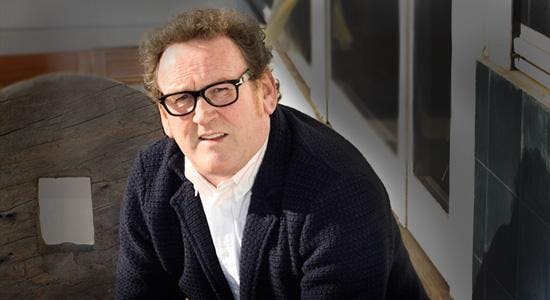
MEANEY: I have a cameo in Pele, which is about the soccer player, Pele. I’ve got a movie called The Devil’s Hand, which is a horror movie. I play this guy called Deacon Beacon, and he’s the head guy in this Amish-type culture. That’s with Rufus Sewell. It’s sort of a believable horror story about people’s superstitions and these five girls who were born on a certain date, and one of them would be the Devil. Most of the people in the story don’t believe it’s true, but it is true.
Visit AMC.com to check out the official Hell on Wheels site.
